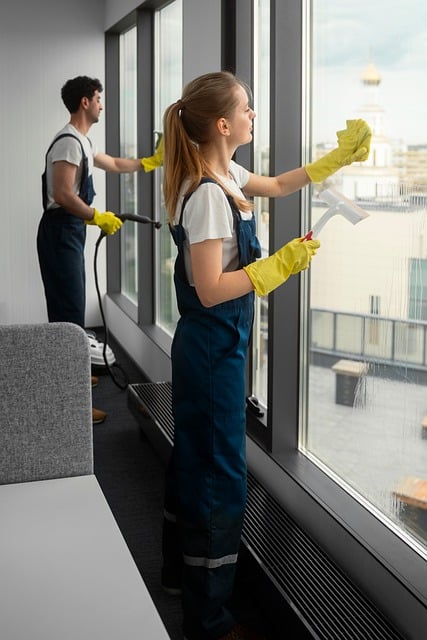The Role of Cleaning Staff in Modern Workplaces
Cleaning staff form the backbone of workplace hygiene and maintenance across virtually every industry. From corporate offices to manufacturing facilities, these professionals ensure environments remain safe, presentable, and conducive to productivity. Their responsibilities extend far beyond basic tidying, encompassing specialized tasks that require technical knowledge, reliability, and strong attention to detail. Understanding the scope and importance of cleaning roles helps both employers and job seekers appreciate the value these positions bring to modern business operations.

What Types of Facilities Employ Cleaning Staff?
The cleaning sector offers a wide range of roles in offices, hotels, warehouses, and public facilities. Corporate headquarters typically require daily maintenance of workstations, conference rooms, and reception areas. Healthcare facilities demand specialized cleaning protocols to maintain sterile environments and prevent infection spread. Educational institutions need thorough sanitization of classrooms, laboratories, and cafeterias. Manufacturing plants require industrial-grade cleaning to remove debris, chemicals, and maintain safety standards. Hotels and hospitality venues focus on guest-facing areas, requiring meticulous attention to presentation and cleanliness standards.
Retail establishments, government buildings, and transportation hubs also rely heavily on professional cleaning services. Each facility type presents unique challenges and requirements, from handling sensitive equipment in technology companies to managing high-traffic areas in shopping centers. This diversity creates numerous opportunities for cleaning professionals to specialize in particular industries or develop broad expertise across multiple sectors.
What Daily Tasks Do Cleaning Professionals Handle?
Tasks may include sweeping, mopping, dusting, waste removal, and maintaining hygiene in restrooms and common areas. Surface sanitization has become increasingly important, particularly in response to health concerns and regulatory requirements. Cleaning staff regularly vacuum carpeted areas, clean windows and glass surfaces, and ensure trash receptacles are emptied and sanitized. Kitchen and break room maintenance involves cleaning appliances, countertops, and ensuring food safety standards are met.
Specialized tasks often include floor stripping and waxing, carpet shampooing, and deep cleaning of upholstery. Many positions require knowledge of proper chemical handling and mixing procedures to ensure effective cleaning while maintaining safety. Equipment maintenance, such as restocking supplies and reporting repair needs, also falls within typical job responsibilities. Some roles involve coordinating with other building maintenance staff to address issues like plumbing problems or electrical concerns that may arise during cleaning activities.
Which Skills Are Most Valued in Cleaning Positions?
Attention to detail, punctuality, and the ability to work independently are valued skills in this profession. Employers seek individuals who can maintain consistent quality standards without constant supervision. Time management abilities are crucial, as cleaning staff must complete assigned areas within specific timeframes while maintaining thoroughness. Physical stamina and mobility are important, given the active nature of the work and the need to reach various areas within facilities.
Communication skills help cleaning staff interact professionally with building occupants and report maintenance issues effectively. Basic problem-solving abilities enable workers to adapt their approaches when encountering unexpected situations or stubborn cleaning challenges. Reliability and trustworthiness are essential, as cleaning staff often work alone and have access to sensitive areas or valuable equipment. Knowledge of safety protocols and chemical handling procedures demonstrates professionalism and reduces liability risks for employers.
What Employment Options Are Available in Cleaning?
Cleaning roles can be part-time or full-time, depending on the company’s needs. Many positions offer flexible scheduling, making them attractive to students, retirees, or individuals seeking supplementary income. Full-time positions typically provide benefits packages, including health insurance, paid time off, and retirement contributions. Part-time roles might involve evening or weekend shifts, allowing workers to accommodate other commitments.
Contract cleaning companies often provide the most diverse opportunities, assigning staff to multiple client locations. Direct employment with individual businesses tends to offer more stability and relationship-building opportunities. Some cleaning professionals advance to supervisory roles, overseeing teams and coordinating large-scale cleaning operations. Entrepreneurial individuals may eventually establish their own cleaning services, serving local businesses or residential clients.
What Support Do Employers Typically Provide?
Uniforms and necessary equipment are usually provided by the employer. This includes cleaning supplies, vacuum cleaners, mops, and specialized tools required for specific tasks. Safety equipment such as gloves, masks, and non-slip footwear are standard provisions. Many employers offer training programs covering proper cleaning techniques, chemical safety, and equipment operation.
Professional development opportunities may include certifications in specialized cleaning methods or safety protocols. Some companies provide language training for non-native speakers or basic literacy programs. Equipment maintenance and replacement are handled by employers, ensuring workers have reliable tools to perform their duties effectively. Insurance coverage and workers’ compensation protection are typically included in employment packages, providing security for workers in physically demanding roles.
The role of cleaning staff continues evolving with technological advances and changing workplace expectations. Modern cleaning professionals adapt to new sanitization requirements, eco-friendly cleaning products, and increasingly sophisticated facility management systems. Their contribution to workplace health, safety, and productivity makes them indispensable members of the modern workforce, providing stable employment opportunities across diverse industries and geographic locations.




